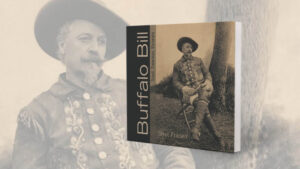![Potatoes of all shapes and sizes on Frederick the Great's grave in Potsdam, Germany. [Sebastian Niedlich]](https://www.historynet.com/wp-content/uploads/image/2009/MHQ/King-Frederick-II-Grave-Potatoes.jpg)
Ask MHQ
Autumn 2009
Anything about military history you’ve always wanted to know? Submit your question to MHQeditor@weiderhistory.com, and we’ll ask an expert in the subject to answer it.
Q: I recently visited the grave of Frederick II, King of Prussia, who is buried next to his beloved dogs near Potsdam, Germany. Though some visitors left flowers, most left potatoes, a few clearly much earlier, since they were black and quite shrivelled. Did the philosopher-king, military genius, flute virtuoso, and composer have a connection to potatoes as well?
—Gene Santoro, New York, N.Y.
A: Discovered by the Spanish when they invaded Peru in 1532, potatoes were brought to Spain by Gonzalo Jimenez de Quesada in 1565, and by 1600 had spread throughout Europe. Initially peasants used them to feed livestock, but not themselves. The Russian Orthodox Church declared them unfit for human consumption because they were not mentioned in the Bible.
King Frederick, however, believed that eating potatoes could lower the price of bread and even substitute for cereals in the event of a shortage. In 1744, he introduced potatoes into his army’s diet. In 1770 his soldiers and their Austrian counterparts spent so much time between battles fighting over rations that that phase of the fighting became known as the “Potato War.” Frederick’s troops called his Bohemian invasion of 1778–1779 the “Potato Campaign.”
During a famine in 1774, Frederick offered free potatoes to the peasants and ordered a national cultivation program. In a typical response, the town of Kolberg declared: “The things have neither smell nor taste, not even the dogs will eat them, so what use are they to us?” Frederick threatened to cut the nose and ears off any peasant who did not plant potatoes, but soon resorted to a different tack, establishing a heavily guarded royal potato field. Local peasants, noticing their king’s admiration of potato flowers as well as the tubers themselves, sneaked in to steal and plant the royal crop—exactly as Frederick had intended.
One French soldier captured by the Prussians in 1757, Antoine-Augustin Parmentier, declared after the Seven Years’ War that he would not have survived captivity without potatoes and wrote an award-winning study, Chemical Examination of the Potato, which claimed they were “capable of reducing the calamities of famine.” So, in addition to his martial and musical accomplishments, “Old Fritz” might add the contribution of spreading the spud.
Next time you have one, let this historical sidelight serve as added food for thought.
Jon Guttman is the research director of the World History Group




